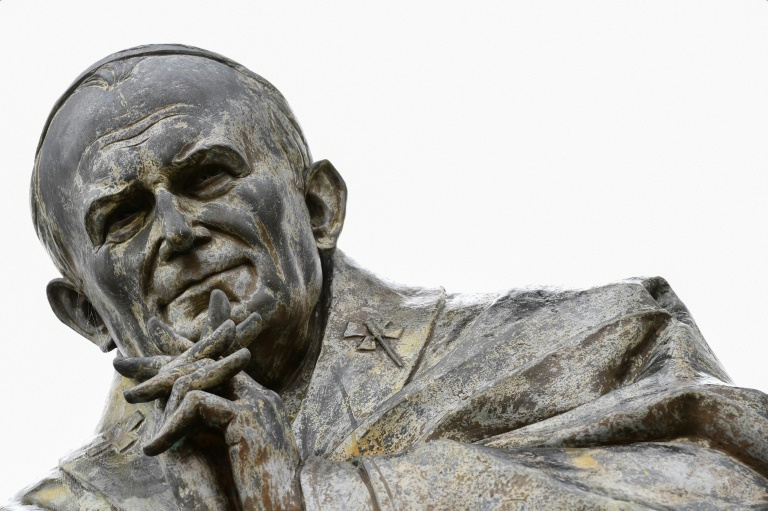PICTURES: Baboons and humans clash in urban Kommetjie
Poland and Hungary have offered to take in the statue of the late pope John Paul II after France’s top court ordered the removal of a cross hanging over it, and tens of thousands have signed online petitions against the ruling.
Like the furious debate that erupted last year when beach resorts tried to ban the “burkini” Muslim swimsuit, the row is a test of France’s strict limits on the role of religion in public life.
“I hope you haven’t come to take away our John Paul,” said Guy Olszewski, a resident of the town in the staunchly Catholic northwestern Brittany region, getting out of his car after seeing journalists clustered around the statue.
“It’s beyond me. We are in a Christian country,” said Olszewski, who like the late pontiff has Polish roots. French authorities have no problem with mosques being built, he argued.
On his way back from the bakery, another local, Michel Pageot, shot back. “It’s not the statue itself that’s the problem. The pope is a personality like any other,” he said.
“But putting a giant cross on top of it turns it into a religious monument.”
– Offer from Orban –
Enshrined in a 1905 law and fiercely defended by many French, “laicite”, or secularism, tightly restricts the display of religious symbols in public.
In the case of the bronze statue, which has stood at the centre of a car park since 2006 and a legal battle for almost as long, the court had no issue with John Paul himself.
But the Christian cross topping the arch that frames the 7.5-metre (25-foot) monument must come down, it ruled.
The decision sparked anger in John Paul’s native Poland, with the Catholic country’s Prime Minister Beata Szydlo offering to move the statue there to “save it from censorship”.
Hungary too, where Prime Minister Viktor Orban has vocally defended European “Christian identity” against what he says is a threat from Islamisation, also offered to take the statue in.
In Ploermel, home to some 10,000 people, residents are divided.
“The statue doesn’t bother me — it has its place here, and could even attract tourists,” said Denis Robin. “I don’t understand this controversy, and unfortunately I don’t think it’s over.”
– Death threats –
France’s secularism laws have repeatedly prompted court cases and heated public debate.
The top administrative court ruled in August 2016 that beach resorts could not ban the burkini on the grounds that the garment posed a public order risk following the truck attack in Nice the month before.

A former mayor of Ploermel wants a referendum on the cross row
Christian campaigners also won a victory last year when the courts said public buildings could display Christmas nativity scenes, which had been contested.
In Ploermel, the former rightwing mayor who had the statue installed accused the pro-secular camp of trying to make Christians “feel permanently guilty”.
“France is France and no legal authority, even the highest, has the right to violate our convictions, our beliefs and above all our culture,” Paul Anselin said.
Anselin wants a local referendum on the cross row and supports a proposal of current mayor Patrick Le Diffon to privatise the land it sits on so that it doesn’t fall under secularism laws.
But Gilles Kerouedan, a local activist whose freedom of thought group fought the case, said privatising the space would solve nothing.
“Clearly it’s the prominent nature of the cross that is the problem,” he said.
Kerouedan filed a legal complaint this week after he received death threats from a group calling for a “nationalist revival”.
Download our app